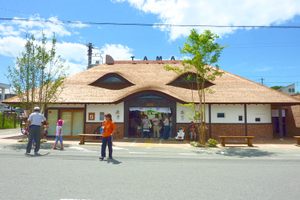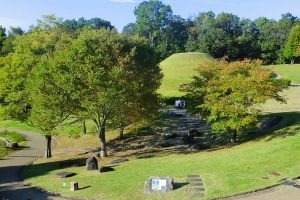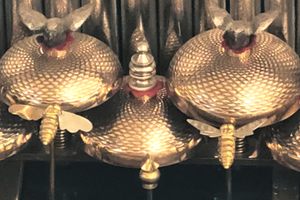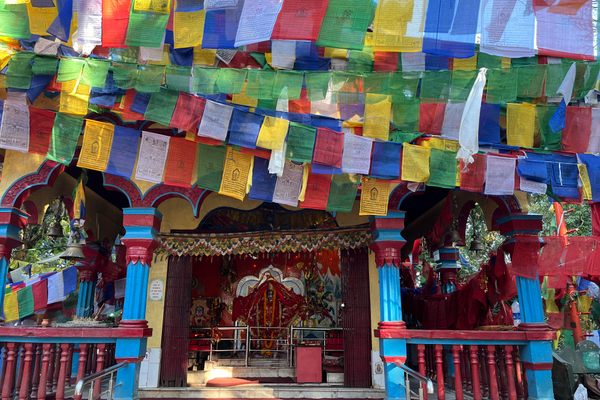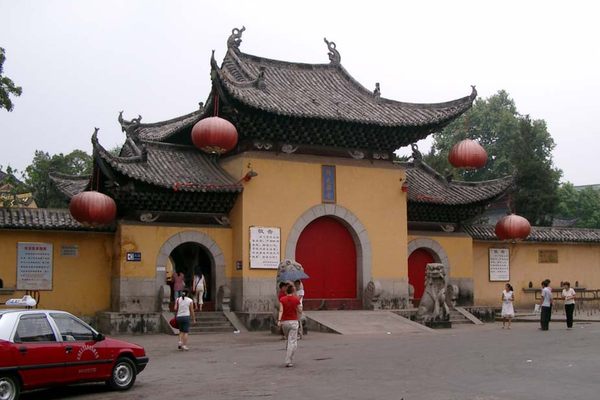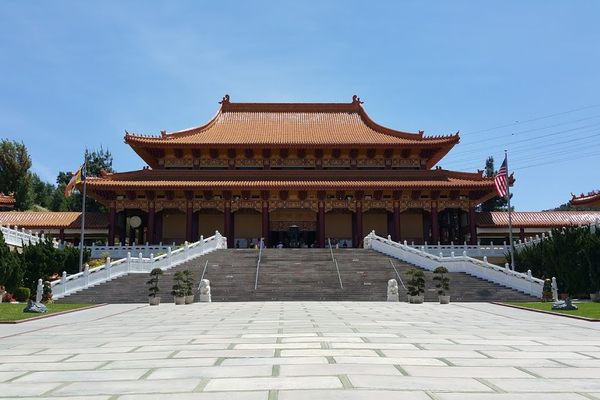About
Fudarakusan-ji is a small Buddhist temple located in the city of Nachikatsuura, where it was established more than a thousand years ago. The temple is named after Fudaraku, the Japanese name for Mount Potalaka (the mythical dwelling of the Buddhist bodhisattva Avalokiteśvara).
Believing that Mount Potalaka was actually an island near the coast of Japan, the monks of Fudarakusan-ji were sometimes sent on suicide missions to enter the Buddhist Paradise and deliver their prayers as their last deed in life. This ritual was known as Fudaraku Tokai, which means “crossing the sea to Fudaraku,” and though it is often described as a self-sacrificing act for the purpose of human salvation, the monks were usually old men who, because of their age, were chosen for the divine journey, since they were slowly approaching death anyway.
By performing Fudaraku Tokai, the monks also hoped to achieve salvation. They became known as tokaisha, pilgrims of the sea. The boats used for the rituals were designed as miniature shrines, but they were actually built as coffins in which a single monk was sealed with nothing but a lantern and a month's supply of food before he was sent out into the open ocean where his destiny awaited him. Using his poised mind and open heart as fuel, the monk was then guided by the gods to Fudaraku, where he would deliver his prayers on behalf of humanity.
However, the ritual itself was nothing but a symbolic event. The true journey to Fudaraku was death itself, so the monks would usually escape their floating prison while near the coast and drown themselves in the waves while their belief was still strong. Others would pull a plug and sink the boat while still inside its chamber, and some would even endure the entire trip and eventually die from thirst or starvation. In rare cases, the boat would find its way back to shore, as was the case in the 16th century, when a monk named Nisshu Shonin arrived on the Ryukyu Islands believing it to be Fudaraku.
Tales about monks escaping their floating prison prematurely also indicate that some of these old men were in fact terrified of dying and had no intention of giving up their lives. For example, a small island in the Nachi Bay called Konkobujima is named after a monk who decided to jump off the boat and swim to the island, where he was caught by his colleagues who forced him adrift once more against his will.
The so-called suicide ritual took place for hundreds of years, up until the late 19th century, and because of its significance in Japanese history, Fudarakusan-ji was designated a UNESCO World Heritage Site as part of the Sacred Sites and Pilgrimage Routes in the Kii Mountain Range in 2004. The temple itself is small, but right next to the main building stands a pavilion where a replica of a boat used in the Fudaraku Tokai ritual is put on display during the opening hours.
Related Tags
Know Before You Go
Fudarakusan-ji is just a few hundred meters from Nachi Station, which is a stop on a bus connection to and from Nachi Falls. You can easily visit the temple if you arrive at the station and have to wait for the bus or train for more than 10 minutes.
Hidden Japan: Sado Island, Nara & Kyoto
Explore a different side of Japan.
Book NowPublished
January 11, 2019










